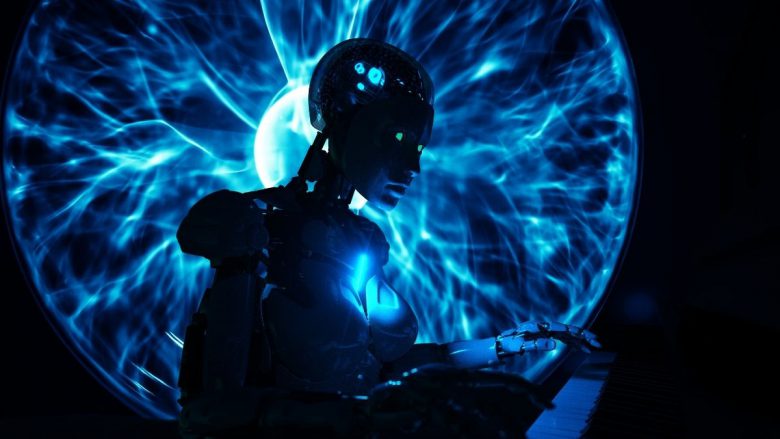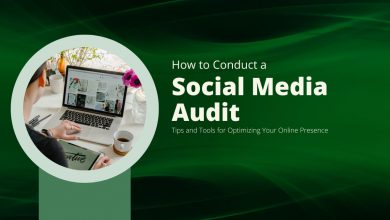
To put it another way, the bots aren’t coming for Bach. Or, depending on your point of view, they have already done so. When Lejaren Hiller and Leonard Isaacson created a composition-generating program that produced the ILLIAC Suite for String Quartet, artificial intelligence made its first inroads into music as a composer. Remember, this was in 1957. Users were able to create their own Bach-style compositions with Google’s first-ever AI-powered Doodle. My apologies, Johann Sebastian. You had a good run, but the bots have graduated from customer service, content marketing, human resources, and healthcare, and they’ll take over from here.
Or maybe not. There are numerous myths about automation and artificial intelligence in music. People believe it is a new phenomenon. It’s over sixty years old. People believe it is a specialized field. It is an essential component of all major production software on the market. People believe it is only appropriate for electronic or experimental music. This makes sense, but artificial intelligence-powered composition software can pass the Turing test by imitating Mozart rather than Brian Eno. And the big one: people believe it will eventually replace composers and songwriters. Which, presumably, will reduce music to a soulless, dead-eyed endeavor.
It isn’t. It won’t happen. None of the aforementioned.
This isn’t a brand-new issue. People are understandably attached to music. It is an art form that almost everyone has strong emotional ties to in some way. This applies not only to specific songs and musicians but also to musical formats as a whole. Audiophiles are well-known for being staunch supporters of vinyl and detractors of MP3s. Even non-audiophiles felt personally affected by the loss of live music with COVID-19.
AI integration is a boon to music
Almost every time in music history, the introduction of new technology has resulted in pearl-clutching about the purity of the art form and the extinction of human feeling. This was true even before the invention of the phonograph and the advent of recorded music in the late nineteenth and early twentieth centuries. People were afraid that recorded music would kill people’s desire to learn an instrument and rot everyone’s brains. As they say, the rest is history.
Thus far, artificial intelligence and automation have had a benevolent integration into the listener-facing side of music. Every time someone waves their phone in the air to Shazam a song is playing at the coffee shop where they’re working then streams the album later that day, that’s AI at work in music. AI-powered recommendation services are becoming increasingly common in streaming services and listener-facing platforms. When a fan buys a ticket to a show by an artist they first heard on an algorithm-generated playlist or while scrolling through a list of suggested videos on YouTube, that’s AI in music at work. Premium licensing platforms are also beginning to implement similar recommendation algorithms that are tailored specifically to content creators. Artists benefit in all of these cases. They are not replaced in any of these cases.
People should be equally at ease with artificial intelligence and automation on the artist side of music as they are on the listener side. If anything, artificial intelligence serves as a companion for musicians and producers. If automation and artificial intelligence were going to completely and irreversibly change the way we write, make, and listen to music, it would have happened by now.
What we talk about when we talk about AI (feat. Grimes)
For decades, we’ve had the technology to create drum tracks that can hit every beat down to the millisecond. Even so, strange, man-made odd-time rhythms persist, and good drummers are praised for bringing their own personal feel and style to their music. Pink Floyd’s “Money” is in 7/8 time. Both Soundgarden’s “Spoonman” and The National’s “Demons” are in 7/4 time. Aside from rhythm, analog synthesizers are more popular than ever, and songwriters all over the world are still hunched over their guitars, looking for a style rather than perfection. They hum melodies into voice memos and type lyrics ideas into the notes app, our modern-day replacement for the tape recorder, and further proof that, while the medium has changed, the most basic human and creative elements have not.
If human songwriters or producers were being replaced, that would be a major story in and of itself. Despite this, the most sensationalized stories about AI and music are along the lines of Grimes announcing (via Instagram comment) that her next album will be a space opera about a hyper-realistic artificial courtesan implanted in a simulation for the human inventor of AI. Despite her appearance, Grimes is not a cyborg or an AI program. Her album will still be the result of human ingenuity. So it is.
Classically trained AI
The “completion” of Beethoven’s tenth symphony is another sensational story that has been circulating. In September of this year, a group of scientists and musicologists at the creative AI startup Platform announced that after two years of feeding Beethoven’s oeuvre and evidence of his creative process into a sophisticated AI program, they’d managed to create a new, finished version of the symphony.
It is not a new endeavor to complete unfinished works by great composers. Due to his previous work completing several unfinished compositions by Bach and Mozart, most notably the latter’s Requiem in time for the Mozart Bicentennial in 1991, Harvard musicologist Robert Levin was asked to collaborate with Platform on the tenth symphony project.
The problem with Beethoven’s tenth symphony is that he never wrote it in the first place. Mozart made it mostly through the Introitus and Kyrie of his Requiem (plus a few drafts of other sections) before collapsing. His wife later hired former students Joseph Eybler and Franz Xaver Süssmayr to complete the project.
Beethoven, on the other hand, only drew a few sketches for the first movement of his tenth symphony before his life was cut short by illness. Musicologists and historians categorized it as a “hypothetical work” over the centuries, and what sketches did exist were assembled properly by Beethoven scholar Barry Cooper in 1988. The fabled tenth symphony is a source of endless speculation, as well as an April Fool’s joke from NPR Classical.
Beethoven, can you roll over?
What AI has accomplished here is nothing short of a technological marvel for the sake of art. And it’s spectacular! But it’s not a conclusion, and framing it as such is the kind of deceptive language that fuels concerns about AI’s role in music. Because Beethoven died, we will never know what Beethoven’s tenth symphony would have sounded like. And we’ll never be able to tell how close this AI-completed composition is to the real thing.
I’m not a skeptic. This is an exciting new development. It is very much a part of the lineage of AI in music, which began with imitating Bach’s fugues. This AI “completion” is the closest thing to the real thing we’ll ever get. In fact, its existence reassures me. It demonstrates that AI is a boon to music, but it also reaffirms that AI is a tool for us, not a creative killer lurking in the shadows. Beethoven was not replaced by AI. Instead, it has allowed us to get to know him better.
Ludwig has (not) left the chat
The public’s fascination and endearing affection for the man and the music he completed himself is in no way diminished by AI’s hypothetical entry into the Beethoven legend and catalog. His fifth and ninth symphonies will be so ingrained in the global musical lexicon that people who know nothing about classical music will recognize the melodies. To the chagrin of parents everywhere, Für Elise will continue to be horribly overplayed at piano recitals.
And, for the skeptics, while the tenth symphony project is proof of AI’s songwriting capabilities, it is not the end of human creativity. The program only worked because it was fed Beethoven’s works and instructed on the intricacies of his creative process. To be honest, the AI program here only worked because a human music genius did it first. The results were then reviewed and edited by an entire team of human musicologists, who evaluated and re-evaluated what sounded right and what didn’t. Plus, AI or no AI, Beethoven was never going to produce any more human creativity. A severe case of post-hepatitic cirrhosis in 1827 ensured it.
Digital audio, virtual studios, and real live producers
The project for the tenth symphony is very exciting! So exciting, in fact, that the majority of how AI functions within music appears a little anticlimactic. And perhaps that is the moral of the story. What AI does in music is practical, useful, and helpful, and none of it is as dramatic as the fear of AI-powered composition software cannibalizing songwriting might make it appear.
There is also a significant difference between AI’s involvement with Beethoven’s symphonies and its involvement with more atmospheric genres intended as background music. AI could very well take over some songwriting duties for playlists chock-full of lo-fi chillhop beats. That’s not a problem, and we’ll be no wiser as a result.
So, while concerns about replacement are understandable, they are somewhat misplaced. Overall, we find the automation and AI to be more prevalent in post-songwriting processes such as production, mixing, and mastering. Automation is already commonplace in digital audio workstations (DAWs) such as ProTools, Logic, and Ableton. That’s a good thing because it makes the jobs of producers easier, faster, and more productive. It effectively empowers them to do a better job.
Plugged-in pop
VSTs are plug-ins that allow you to automate various processes. (VSTs is an abbreviation for virtual studio technology.) A virtual studio instrument (VST) is a virtual instrument or piece of equipment that exists within a virtual studio. Consider it a virtual fuzz pedal that is attached to the software rather than the pedalboard and is accessed with a few clicks rather than a foot tap. Tap a fuzz pedal with your foot in the middle of a riff to make it scuzzy. When you apply it to an Ableton recording of a guitar, it scuzzes it up in the same way.
Automation has transformed the production space for musicians and producers. Consider the simple but effective noise gate. Noise gates are devices and VSTs that cut off any signal in a recording that drops below a certain volume level. This regulates echo and unwanted noise. This isn’t new technology, but it was previously only available through a manual process.
But, beyond the confines of the studio, automation and artificial intelligence (AI) have transformed music. Sampling was used to necessitate the deft manipulation of multiple vinyl records on a turntable. Automation has made sampling a completely digital process. AI has also made it simpler and more precise than ever before. This process is ongoing as machine learning technology improves at distinguishing and separating instruments within a song that a producer wants to sample.
What if AI makes us more creative?
Artificial intelligence has also assisted musicians and producers of all genres in creating new sounds. Anyone familiar with the fundamentals of synthesizers understands that computation in music is nothing new. Similarly, artificial intelligence (AI) is the most recent iteration of music’s long-standing electronic and innovative impulse. (For the record, synthesizers were another of those major music technological developments that failed to live up to their antagonistic, soul-sucking, creativity-killing potential.) After all, guitars did just fine in the world of synthesizers. And good luck arguing that Kraftwerk isn’t brilliant when they’re at their best, especially when impersonating androids.)
AI, like synthesizers before it, makes it easier than ever to create new sounds of higher quality. As a result, music becomes more interesting. If that isn’t a direct counterargument to the outcry over AI in music, what is?
A&R, AI, and a way forward
AI and algorithms have also made inroads into other areas of the music industry. When the music industry took a dive in the early 2000s as a result of file sharing, the old-school A&R man became extinct. Fans are now the new A&R, propelling unknown independent artists to fame after discovering their music on AI-curated recommendation playlists. Asaii, a music analytics platform that helps labels track trends and hear more emerging artists, is available to the few A&R personnel who have kept their jobs. All of these are good things.
AI is present throughout the music industry, the production process, and listener-facing platforms, making it difficult to predict what will come next. The future of artificial intelligence in music is not a single development. Rather, it is a plethora of enhancements to ongoing developments.
Why not take it to the next level? Will an AI program ever contribute enough to a song to be credited as a co-writer? And who gets the royalties in that case? But I’m digressing.
AI’s odd oncoming future
Moving forward, I believe one thing is likely to be certain. Automation and AI, in my opinion, will continue to be “fellow travelers.” These technological advancements are unlikely to usher in the next dominant medium of music distribution, whatever that may be. In the 1990s, the average music fan thought CDs were the pinnacle of listening technology. We all know how that ended. AI is unlikely to change the vulnerability of aging master recordings, as evidenced by the 2008 Universal fire, which destroyed masters by Buddy Holly, John Coltrane, Joni Mitchell, Nirvana, Snoop Dogg, and Tupac, to name a few.
AI is not an all-powerful force in the world of music. It is a driving force for increased productivity, discovery, enjoyment, and creative growth. In other words, it is a positive force. Bach will survive AI even though he has been dead for the last 250 years. Engineers will continue to use his music to improve AI. Furthermore, AI has brought us as close to Beethoven’s tenth symphony as we will ever get. Not bad for two guys who were born before recorded music existed.
Learn more from Artificial Intelligence and read The Future of Artificial Intelligence in Digital Marketing.



3 Comments